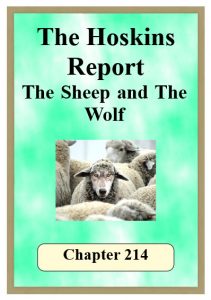There are sheep and there are wolves. A sheep is a sheep. A wolf is a wolf. Wolves eat sheep. That’s what they do. Sheep try to keep from being eaten. That’s what they do. Wolves think it is unreasonable for sheep to complain. But. of course, that, too, is what they do.
The Sheep
SHEEP ARE PREDICTABLE. They all act the same way because that’s the way they are bred. They tend to congregate and follow a shepherd. The shepherd leads them to green pastures. The sheep graze, grow fat, and produce mutton, wool, milk, cheese, and skins.
Obedient sheep obey their shepherd and tend to live lives which are productive and plentiful. Sheep who disobey their shepherd may wander from the flock and be injured. Many die in the teeth of the wolf.
The smell of sheep is distinctive. They possess scent glands between their cloven hooves and leave their scent wherever they walk. Their urine and droppings also leave a distinctive odour. Sheep ranges are distinctive because of this. Sheep scent alone is sufficient to frighten most predators away from the flock. It is the area protected by the Shepherd and his dogs who will attack predators.
The Shepherd has strict rules. For countless generations he ruthlessly culled his flock. Sheep showing aggressive traits permitting them to attack and kill other sheep have been quickly eliminated. The result is that today it is almost impossible to find a sheep who will kill another sheep. Like breeds like. While predators have countless ailments, sheep have few, and NO hereditary diseases. Most serious diseases they catch are brought in by outsiders, and these have sometimes been known to almost wipe out a flock.
